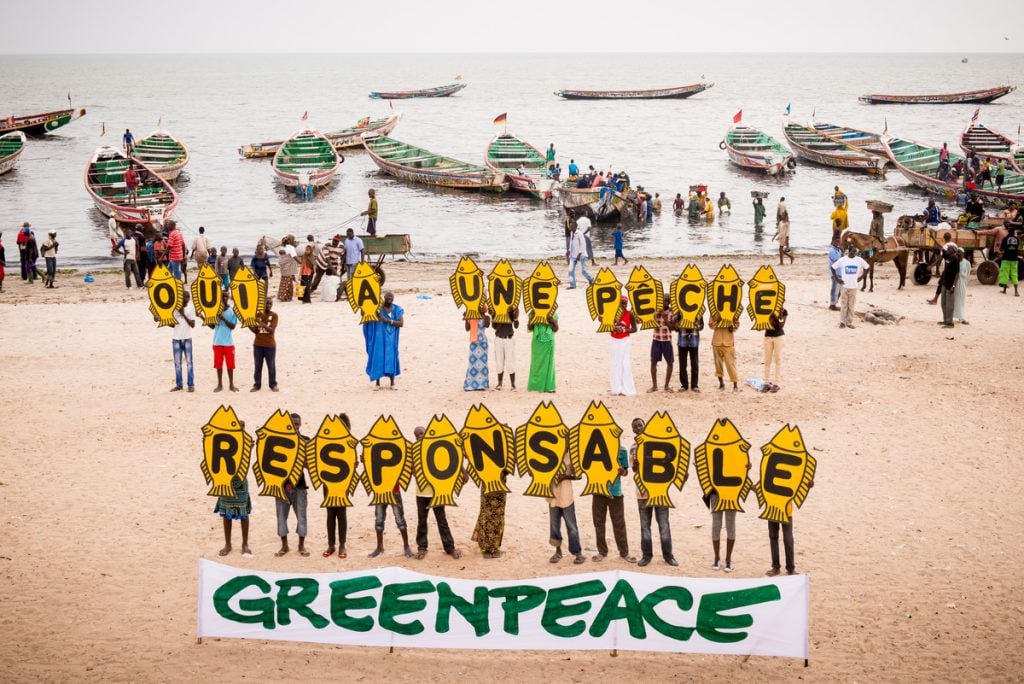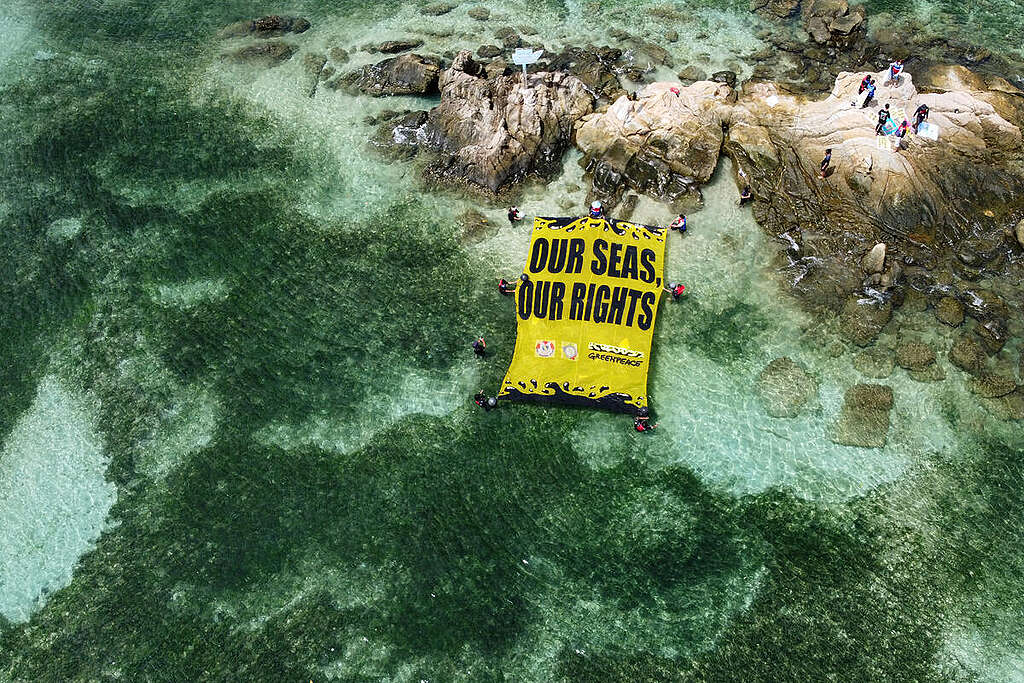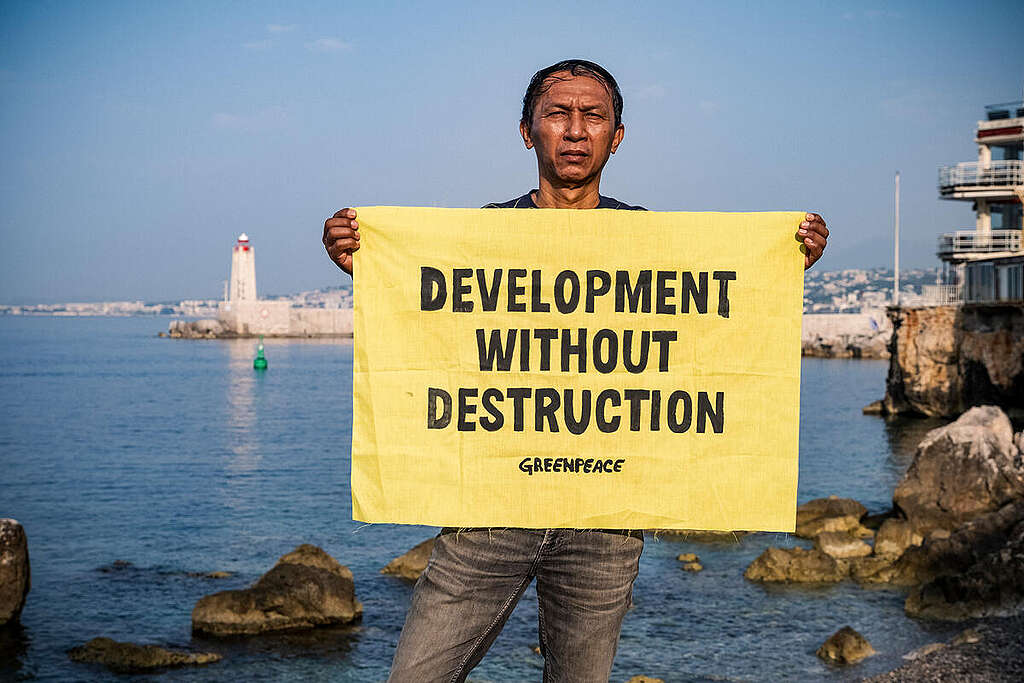Do you know how many people in the world are dependent on small-scale fisheries for their livelihoods?
According to recent research, it's roughly 492 million. Small scale fisheries provide jobs for 60 million people, which represents 90 percent of total fisheries employment worldwide; and four of every ten people engaged in small-scale fisheries are women. Small-scale fishers play a critical role in sustaining food security and livelihoods, and also in protecting the ocean and climate. Grounded in sustainable practices and traditional knowledge, small-scale fisheries feed the world while caring for healthy fish stocks and marine biodiversity. They also protect vital ecosystems in the fight against climate change, like mangroves, that capture carbon.

Yet the very communities sustaining the ocean are being pushed to the frontline of its destruction.
From Patagonia to Senegal, Thailand, and the Indian Ocean, coastal communities are facing escalating pressures. In Chilean and Argentinian Patagonia, the rapid spread of salmon farms pollutes waters, harms local ecosystems, and displaces artisanal fishers, while driving a global demand for fishmeal and fish oil. In Senegal and across West Africa, industrial fishmeal and fish-oil plants are stripping coastal waters of wild fish, pushing communities into deepening food insecurity and eroding long-standing livelihoods. In Thailand, overfishing and illegal practices are depleting coastal fish populations, just as communities fight destructive industrial mega-projects. And across Sri Lanka and India, repeated maritime incidents have caused severe environmental damage and long-term social and economic distress. Climate change is also having devastating impacts on vulnerable regions and hitting harder coastal communities through sea level rise, increasingly intense heatwaves, cyclones, and loss of fishing grounds and tourism opportunities.
Addressing the threats their communities are facing, coastal representatives from around the world said:
"The destruction of endangered marine species and the depletion of essential ocean ecosystems are increasing at an alarming rate. This threatens both the sustainability of the sea and the survival of the coastal communities that rely on it," said Selvaratnam Dilaxan, Founder of the Happy Voice Hub, community member, Mannar Pesalai, Sri Lanka.
"Aquatic animals belong to everyone. Everyone has the right to access aquatic resources, but no one has the right to destroy the future of aquatic resources – those are juvenile fish and young aquatic animals," said Piya Thedyam, President of the Federation of Thai Fisherfolk Association.
"The situation is critical: if we do nothing, the sea risks becoming a liquid desert," said Abdou Karim Sall, President of the Marine Protected Area's Management Committee.

Industrial exploitation of the ocean that harms both people and the planet.
These threats are not isolated incidents, they are all different pieces of the same system. Across countries, small-scale fishers and coastal movements are proving that they are the solution by asserting control over their waters, protecting fishing grounds from industrial pressure, demanding transparent governance, and strengthening the resilient livelihoods that safeguard the future of the ocean. Coastal communities' knowledge and sustainable practices are essential to conserving the ocean's richness, an ocean we all depend on as it provides half of the oxygen we breathe, regulates climate, and feeds billions of people around the world.
Supporting small-scale fishers' call to action, Nichanan Tanthanawit, Global Project Lead for Ocean Justice Campaign, Greenpeace South East Asia, said:
"Today, we honour the leadership of coastal peoples, and we stand with them in urging governments to recognise coastal communities as rights holders in all coastal and marine matters, from one coastline to another. We call for policies that uphold accountability and transparency in fisheries management and safeguard the communities who protect the ocean, because a fair and just ocean is the future we must protect."
On World Fisheries Day, A Call to Governments: recognize and center coastal communities
This World Fisheries Day, Greenpeace is calling on global governments to recognize and center Indigenous and coastal communities, including small-scale fishers, in decision making about oceans, supporting the global small-scale fishers call to action. Recognising coastal communities rights and knowledge, and centering them in decision making about the ocean is vital to achieving global biodiversity goals and safeguarding our shared future. Standing with coastal communities is crucial to help ensure their demands reach local and global decision-makers and that they are centered in decision making about the ocean, including during COP17 of the Convention on Biological Diversity (CBD) in 2026, where the future of ocean protection, restoration, and governance will be shaped.
Laura Bergamo is the Global Communications and Engagement Lead for Ocean Justice at Greenpeace Southeast Asia







